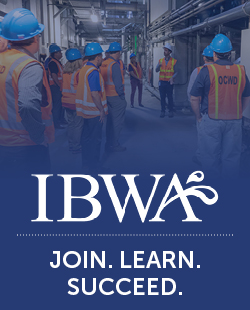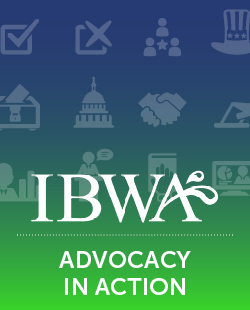August 14, 2002
Mr. Eugene Buck Henderson
Section Manager – Public Drinking Water Section
Water Utilities Division
Texas Natural Resources Conservation Commission
12100 Park 35 Circle – MC155
Austin, Texas 78753
Re: Request for Issuance of an Interpretation of Source Water as Pretreatment Ingredient for Bottled Water
Dear Mr. Henderson:
The International Bottled Water Association (IBWA)* respectfully requests that the Texas Natural Resource Conservation Commission (TNRCC) issue a formal opinion stating that water being transported from source to bottling facility be classified as pretreatment water and, thereby, not subject to the residual chlorine requirements of §290.40(k) of the Texas Administrative Code. Similar to water stored in reservoirs prior to reaching water treatment plants, water hauled by tanker, pipeline or other means from a water source to a water bottling facility does not need to be subject to the residual disinfectant rule.
Sections 229.83(3)(B), (C), and (D) and 229.83(4) of the current bottled water rule require a minimum chlorine residual of 0.5 mg/l in water being hauled. The Texas Department of Health (TDH) adopted these requirements from provisions in regulations governing public drinking water, administered by TNRCC. In the case of public water supplies, because of the nature of the delivery system (i.e. underground pipes), a residual disinfectant is required to ensure the safety of the water.
On the contrary, water that is either piped to or otherwise transported from the source to the water treatment plant should be not subject to the residual disinfectant requirement because it will be further treated prior to bottling. In the case of sources of water intended for use in bottled water operations, the water never enters a “public distribution system,” and is not hauled directly to consumers’ homes. Therefore, the requirement for a residual disinfectant should not apply. Should the water be piped or hauled directly to consumers’ homes, it would then become a “public drinking water” and needs to be subject to the residual disinfectant requirement.
Furthermore, the current requirement for a minimum chlorine residual of 0.5 mg/l is in direct conflict with federal rules governing disinfectants and disinfection byproducts (D/DBPs) in bottled water. A determination of such water as pretreatment will allow bottlers to comply with the U.S. Food and Drug Administration’s (FDA) new D/DBP standards of quality (SOQs), which were effective January 1, 2002, while having no negative effect on public safety. In this new rule, FDA amended the bottled water standard of quality in 21 CFR §165.110(b) by adopting allowable levels for three residual disinfectants [chloramines (4.0 mg/l), chlorine (0.5 mg/l), and chlorine dioxide (0.8 mg/l)] and three types of disinfection byproducts (DBP’s) [bromate (0.010 mg/l), chlorite (1.0 mg/l), and haloacetic acids (0.060 mg/l)]. The FDA ruling also permits bottled water manufacturers whose natural source water has not been treated with chlorine to forego testing their source for disinfectants or disinfectant byproducts.
Bottled water producers and IBWA have invested substantial time and resources to comply with the new D/DBP SOQ’s, including researching alternative treatment methods to eliminate or reduce the formation of DBPs.
Recommendation:
IBWA requests that TNRCC issue an opinion stating that water being transported from a source to a bottling facility for processing into a final bottled water product be classified as pretreatment water. From a regulatory standpoint, transported bulk water intended for use in bottled water is the main and often sole ingredient in a bottling process that includes a multi-barrier approach to ensure the quality of the bottled water. Such a distinction is the regulatory difference between bottled water as a packaged food product and public drinking water.
As this opinion would need to be coordinated with TDH, IBWA strongly urges TNRCC to begin such discussions with TDH as soon as possible so that regulatory changes to address this issue can be incorporated in TDH’s regulatory review of the bottled and vended water regulations.
As you may know, TDH is currently undergoing a review of regulations governing bottled water. IBWA submitted comments on April 17, 2002, that relate to TNRCC’s regulation of public drinking water (§290.40(K)). IBWA’s comments to TDH are enclosed for your review.
IBWA is confident these recommendations will strengthen and update the state’s bottled and vended bottled water rules without any adverse impact on public health.
If you have any questions, or need more information, please do not hesitate to contact me at pdonoho@bottledwater.org or (703) 683-5213.
Sincerely,
Patrick Donoho
Vice President of Government Relations
Enclosure
*IBWA is the trade association representing the bottled water industry. Founded in 1958, IBWA member companies account for more than 80 percent of all bottled water sales in the U.S. The association’s membership includes domestic and international bottlers, distributors, and suppliers.


